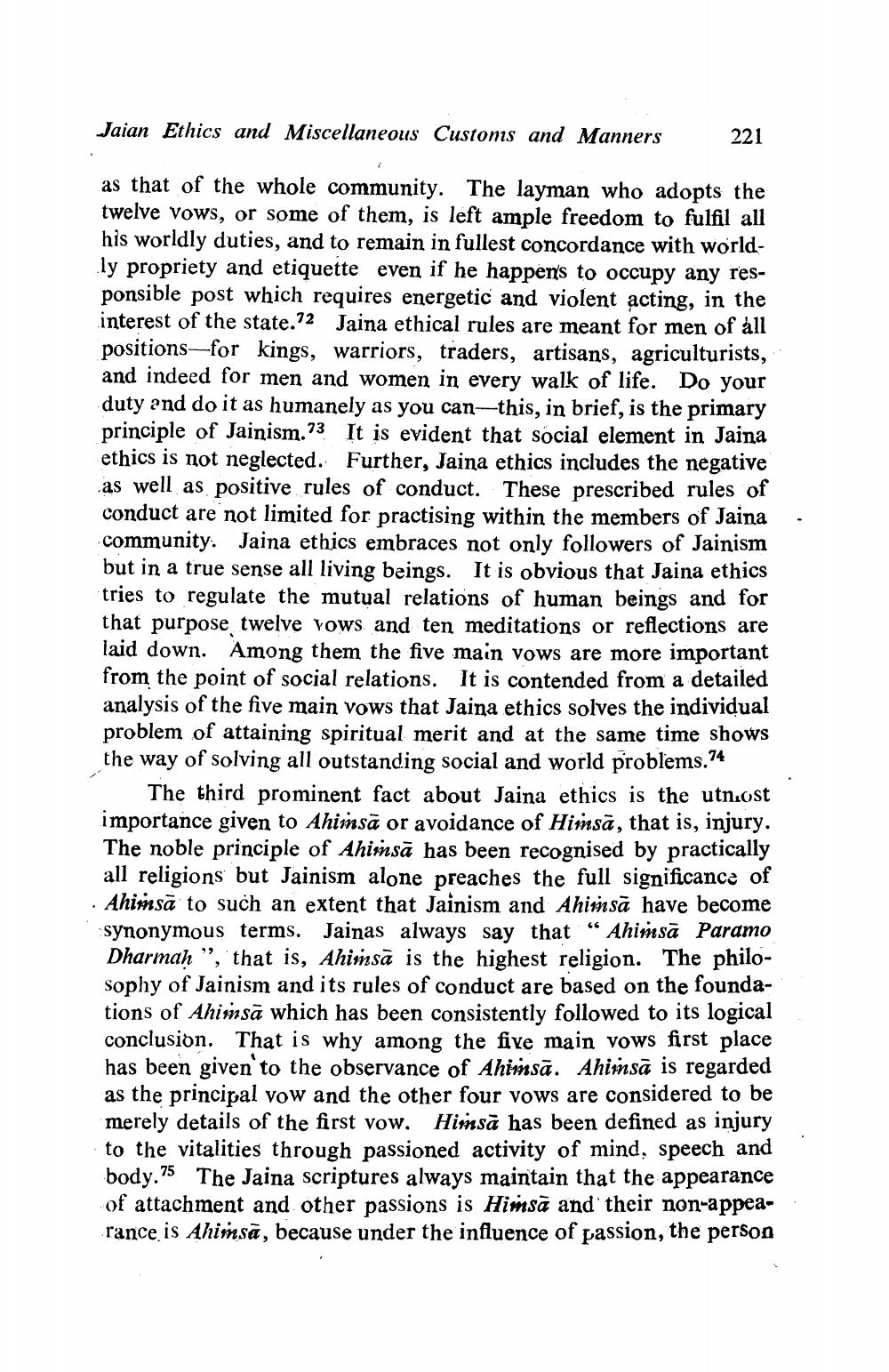________________
Jaian Ethics and Miscellaneous Customis and Manners
221
.
as that of the whole community. The layman who adopts the twelve Vows, or some of them, is left ample freedom to fulfil all his worldly duties, and to remain in fullest concordance with worldly propriety and etiquette even if he happens to occupy any responsible post which requires energetic and violent acting, in the interest of the state.72 Jaina ethical rules are meant for men of all positions—for kings, warriors, traders, artisans, agriculturists, and indeed for men and women in every walk of life. Do your duty and do it as humanely as you can-this, in brief, is the primary principle of Jainism.73 It is evident that social element in Jaina ethics is not neglected. Further, Jaina ethics includes the negative as well as positive rules of conduct. These prescribed rules of conduct are not limited for practising within the members of Jaina community. Jaina ethics embraces not only followers of Jainism but in a true sense all living beings. It is obvious that Jaina ethics tries to regulate the mutual relations of human beings and for that purpose twelve vows and ten meditations or reflections are laid down. Among them the five main vows are more important from the point of social relations. It is contended from a detailed analysis of the five main vows that Jaina ethics solves the individual problem of attaining spiritual merit and at the same time shows the way of solving all outstanding social and world problems.74
The third prominent fact about Jaina ethics is the utn.ost importance given to Ahimsā or avoidance of Himsā, that is, injury. The noble principle of Ahimsā has been recognised by practically all religions but Jainism alone preaches the full significance of · Ahimsa to such an extent that Jainism and Ahimsā have become synonymous terms. Jainas always say that “Ahimsā Paramo Dharmah”, that is, Ahimsā is the highest religion. The philosophy of Jainism and its rules of conduct are based on the foundations of Ahimsā which has been consistently followed to its logical conclusion. That is why among the five main vows first place has been given to the observance of Ahimsā. Ahiinsa is regarded as the principal vow and the other four vows are considered to be merely details of the first vow. Himsā has been defined as injury to the vitalities through passioned activity of mind, speech and body.75 The Jaina scriptures always maintain that the appearance of attachment and other passions is Himsā and their non-appearance is Ahimsā, because under the influence of passion, the person




